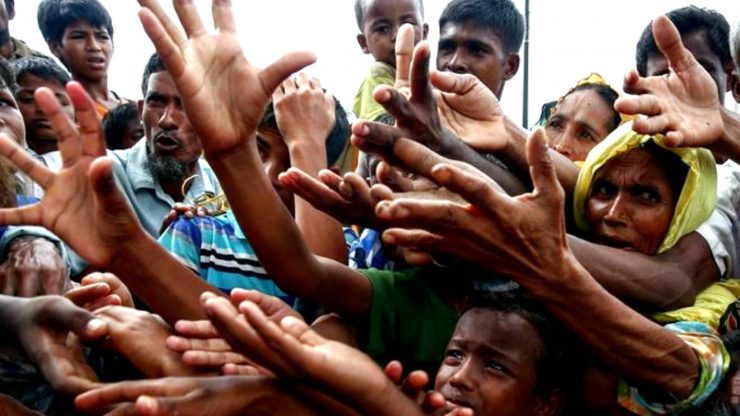Omid Biparva told the Strategic Council on Foreign Relations that humanitarian situation in Myanmar is dire and can be described as a “disaster”.
“According to the evidence, an ethnic group is on the verge of extinction under Article 1 of the Convention against Genocide”, he said, referring to the remarks of the director of the independent investigation mechanism for Myanmar of the United Nations concerning the collection of evidence of genocide since the army took power and started extensive and systematic attacks against civilizations that are considered as crime against humanity.
He described the procedures of the International Criminal Court (ICC) as “conservative and hard” when it comes to branding “genocide”, saying that the situation of the Rohingya ethnic group as well as the violence in Myanmar are very dangerous. Despite a UN agreement with Myanmar that would allow hundreds of thousands of displaced Rohingya in Bangladesh to return to their homeland by choice, the continued massive influx of migrants to Bangladesh and other countries reflects the fragile state which threatens this ethnic group.
This expert of the Human Rights Council of the Judiciary referred to the anti-human-rights measures and crimes committed against Muslim Rohingya and escalated tension and violence in Myanmar by the military which have resulted in the killing of some protestors.
“These actions are criminal under international criminal law, but are controversial in terms of investigating “genocide” or “crimes against humanity.” However, due to its appearance and its conformity with the definition of genocide in the “Convention against Genocide”, it can be referred to as genocide”.
Biparva added that “in any case, what is happening in Myanmar is a humanitarian catastrophe in which an ethnic and religious group is on the verge of extinction and action is being taken against them systematically and continuously, and the whole region has been affected by these actions in violation of international criminal law.”.
Asked about the responsibility of the United Nations and the Security Council regarding crimes in Myanmar, he said “the Myanmar military has reportedly used a variety of tactics, including burning villages and residential areas, looting property, mass arrests, torture, executions of prisoners and sexual violence against civilians, and is conducting clean-up operations in China State and several other states”.
He added that the Human Rights Watch, in a statement issued by the 521 National and International Organization, called on the UN Security Council to pass a resolution opposing the actions of the Myanmar army in China State, which borders India.
Biprova referred to the military coup in Myanmar and the military domination of the country and the suppression of anti-coup demonstrations, and commented on the UN Security Council’s passive response to the violence.
“On October 24, 2018, the UN Security Council voted in favor of France and Britain and the United States and condemned the Myanmar government for genocide of Rohingya Muslims, and this issue is also in the preliminary evaluation stage at the International Criminal Court.
The destructive role of veto power by the members of the Security Council
He added that however countries like China and Russia voted against this move in the Security Council, and now China and Russia, as the main veto-wielding members, are preventing the issue from being seriously pursued in the Security Council, and the UN has so far failed to take serious action and take a strategy in this respect.
According to the international law analyst, the mechanism that has made the UN Security Council ineffective by the Myanmar government in dealing with the genocide of Rohingya Muslims is the veto of members of the Security Council.
“According to some reports, more than 1,200 civilians have been killed and 37,000 displaced by security forces since the coup in Myanmar,” he said, adding that the military rule came to power in Myanmar through a coup which is considered contrary to the right of nations to self-determination and the Charter of the United Nations as per international law; Because using force to gain power is against the law. The UN special envoy for Myanmar also did not see the recognition of Myanmar’s military as a factor in helping to reduce violence.
Biparva said the coup government ignores the nation’s civil and political rights and the right to self-determination as a collective right; essentially establishing a military government is considered violating citizens’ right to political participation, and violating the right to self-determination in Myanmar. Accepting a government arising from coup is in evident violation of the International Covenant on Civil and Political Rights and the self-determination right which is one of the fundamental principles of the international law.










0 Comments